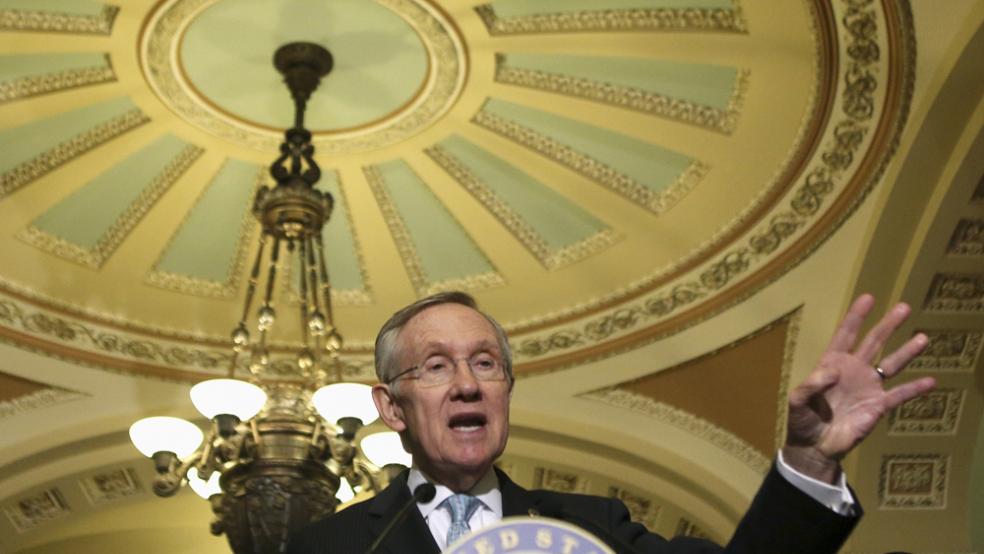U.S. Senate Democrats agreed on Tuesday to drop language outlining reforms of the International Monetary Fund from a Ukraine aid bill to increase the odds it will get through Congress, said Majority Leader Harry Reid, after weeks of partisan bickering that had delayed the package.
Reid cited stiff opposition to the IMF reform provisions in the Republican-led House of Representatives. "A majority of the Senate would have liked to have gotten that done with the IMF in it, but it was headed to nowhere in the House," the Nevada Democrat told reporters.
Related: Why Germany and Poland Are Winners in the Ukraine Crisis
The Senate bill backs a $1 billion loan guarantee for the government in Kiev, provides $150 million in aid for Ukraine and neighboring countries and requires sanctions on Russians and Ukrainians responsible for corruption, human rights abuses or undermining stability in Ukraine.
Backers of the bill want it passed to help shore up Ukraine's economy and to send a message to Russian President Vladimir Putin to discourage him from moving further westward into Ukraine or other neighboring countries.
The legislation is now expected to pass through Congress relatively quickly and be sent to President Barack Obama to sign into law, as long as another simmering dispute - over whether to include increased natural gas exports in the bill - does not hold it up again.
The House of Representatives' Foreign Affairs Committee passed its version of a largely similar measure earlier on Tuesday, paving the way for its consideration by the full House.
Related: Stopping Putin with U.S. Gas Exports Is Full of Hot Air
Reid also said the compromise Senate bill could come up for a vote by Wednesday.
The White House has been pushing Congress for a year to approve a shift of $63 billion from an IMF crisis fund to its general accounts. Administration officials have said Washington must make good on a commitment from 2010 and maintain U.S. influence at the international lender while strengthening the institution, which is seen playing a key role in stabilizing Ukraine's economy.
But many Republicans balked. Some complained that the reforms would cost too much at a time of deficits and budget cuts or would lessen U.S. influence at the IMF, which supporters of the reforms denied.
Democratic Senate leaders said they would keep pushing for the reforms, noting they would strengthen the IMF at a crucial time as it reaches an agreement to boost Ukraine's economy.
"We would have fully paid for the $315 million budget impact of the IMF reforms with real cuts and from funds that were underperforming or no longer needed," said New Jersey Senator Robert Menendez, the chairman of the Senate Foreign Relations Committee.
"I feel very strongly about IMF reform, we need to get that done and we need to get it done just as quickly as we can," Reid said.




